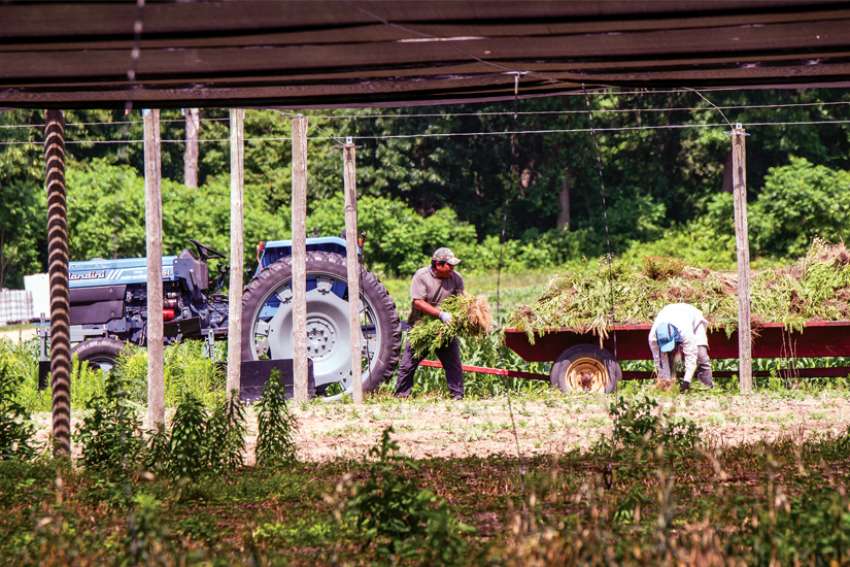Lawyer Sean Carter of the firm Carters Professional Corporation, representing the diocese, has applied for intervenor status as a friend of the court in a dispute over quarantine conditions for migrant farm workers. The Haldimand-Norfolk Medical Officer of Health has appealed a June 12 decision by the quasi-judicial provincial Health Services Appeal and Review Board. That board struck down part of Dr. Shanker Nesathurai’s order restricting the number of migrant workers who could live in a bunkhouse while under a 14-day COVID-19 quarantine.
Under Ontario’s state of emergency, Nesathurai had ordered that no more than three workers could self-isolate in a common bunkhouse. He then removed the overflow of farm workers to hotel rooms in Brantford. Farmers complained that their workers are miles away, difficult to communicate with and not ready to begin work when they come out of quarantine.
The three-person Review and Appeal Board called Nesathurai’s three-to-a-bunk rule arbitrary and suggested the Board of Health draw up individual risk assessments and quarantine plans for every one of dozens of bunkhouses across the two counties.
Nesathurai immediately appealed the decision to Ontario Divisional Court. With a workforce of 10 inspectors spread out over dozens of farms, long-term care homes, restaurants, grocery stores and every other possible location for the spread of the disease, a bunkhouse-by-bunkhouse review would not be realistic, Nesathurai’s lawyer Jill Dogherty argued.
While the appeal is pending, Nesathurai’s three-in-a-bunkhouse rule remains in force, though he has issued 17 exceptions to this rule.
The counties jammed between Hamilton and Lake Erie are dominated by agribusiness and the Norfolk town councillors, who also form the board of health, were concerned about how Nesathurai’s order would hit the farming community.
But Hamilton Bishop Doug Crosby is impressed by Nesathurai’s care for migrant workers, which has extended beyond the strictly medical. The doctor has sought out pastoral care for workers, even obtaining Spanish-language Bibles for those who wanted them.
“I must say, I was very moved and pleased by his concern for their pastoral well-being as well as their health,” Crosby told The Catholic Register. “He’s really gone the extra mile. This guy, this doctor, is an amazing, amazing person. He certainly has the well-being of migrant workers in his heart.”
The diocese shares Nesathurai’s concern, and Crosby wants to do whatever he can to support Fr. Peter Ciallella’s pastoral outreach to the region’s guests, who work for minimum wage producing the food Canadians rely on.
“I know that what we have to offer is a pastoral concern for the well-being of these men, and certainly that’s done on the front lines. That’s Fr. Peter (Ciallella),” Crosby said.
Should the court accept the Hamilton diocese as a “friend of the court,” Carter would bring up the lessons and perspective of Ciallella and his parish volunteers who have welcomed the migrants.
“In terms of the assistance we hope we can bring to the court, and subject to approval by Bishop Crosby, I would call for a reasoned middle ground, which focuses on making sure that people who come to our country to work have the same very basic human rights as everyone else,” Carter said.
Nesathurai said he has been ordered by the board of health not to speak with the media while the appeal is before the courts.
While the Haldimand-Norfolk Board of Health opposes Nesathurai’s appeal, their hands are tied. Under the state of emergency, Nesathurai has the necessary authority to appeal the Health Services Appeal and Review Board’s decision.
Somebody has to speak for the migrant workers, said organic farmer and retired university professor Ella Haley.
“They will not speak up because they could be sent home,” she said. “They have no rights.”


